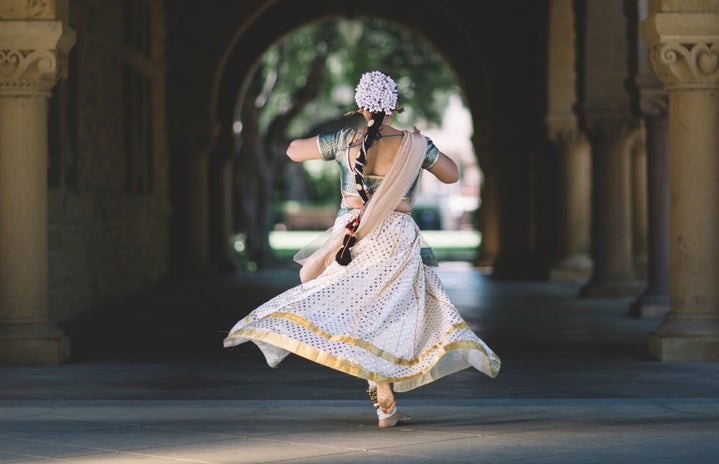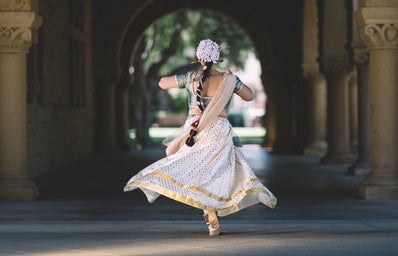Mid-fall brings with it a familiar, yet subtle chill permeating the Forty Acres, quickly dimming days, and…booming Indian music?
If you were anywhere near the UT Rec Center on Friday night, you definitely heard the Gujarati and Bollywood music blasting from San Jac Boulevard. And if you looked closer, you might have caught a glimpse of all the intricate, sparkly ghagras (Indian party gowns), shararas (tiered bellbottom-like pants), kurta pyjamas (long patterned tunics and matching pants), and sarees (no explanation needed).
You may have even been curious, like the girl I met on the elevator on my way back, who eagerly asked me “What’s going on tonight? Is there some frat party I’m missing?”
So to quench your curiosity, here I am. And no, it’s not a frat party. It’s Garba.
Garba is the signature dance of Navratri, the nine night-long Hindu festival that celebrates the mother Goddess Durga and her ten-day-long battle and eventual triumph over the demon Mahishāsura. To put it simply, Navratri celebrates the triumph of good over evil, but also divinity and femininity. Each of the nine nights is dedicated to worshipping a different aspect of Goddess Durga and her nine feminine forms.
Although it’s advertised as an event here at UT, Garba actually also refers to a folk dance originating in the North Indian state of Gujarat. The word “garba” actually means “womb” in Sanskrit, and traditionally, it’s danced around the garba deep, or the “womb lamp”. It’s danced in concentric circles around the garba deep, The motif of concentric circles is incredibly important to garba. People dance in circles around the garba deep as a representation of time and the endless circle of life, death and rebirth in Hinduism. And of course, in modern-day, you’ll find this dance paired with sweeping hand motions, in-steps that coincide with the beat of the music, and, of course, thumkas (hip-pops)!
At their core, Navratri and Garba are celebrations of the divine feminine, or the Devi. Celebrating Garba means celebrating not only the Devi, but celebrating your own femininity and divine energy. So this fall, whether or not you celebrate Navratri and Garba, take that message of celebration and self-acceptance to propel you through the rest of the semester, and channel your divine feminine energy to succeed. May Maa Durga be with you this semester!


